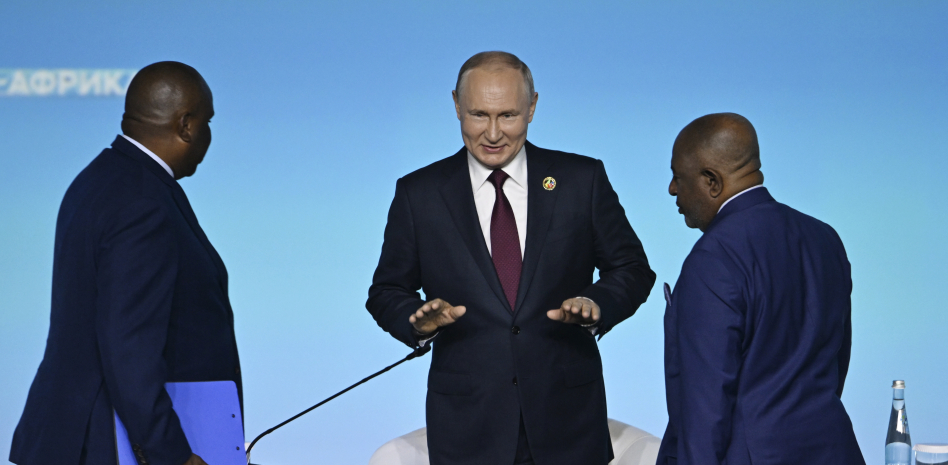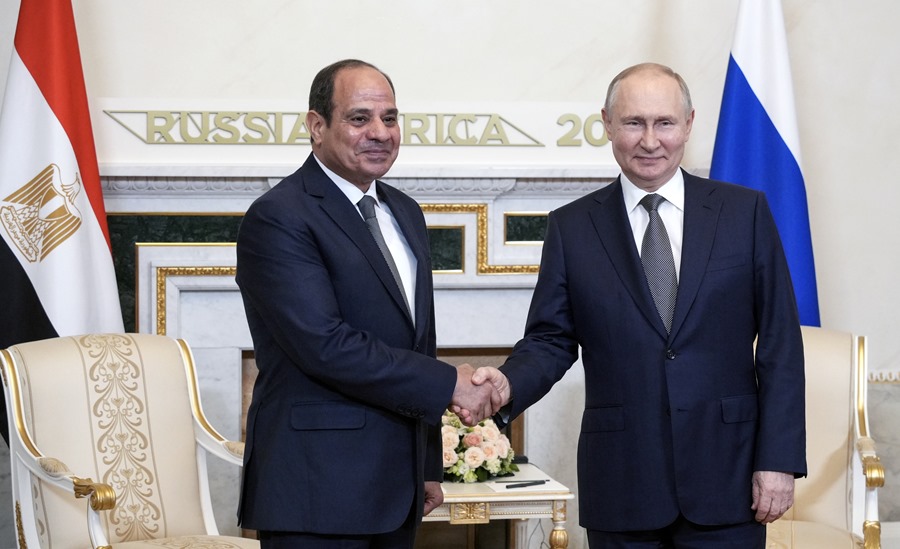Russia-Africa Summit 2023: Governmental and Institutional travels don't know the word seasonality
- Emmanuel González
- Foreign Affairs
- Hits: 1412
On July 27, 2023, the Russia-Africa Summit, also known as the Russia-Africa Economic and Humanitarian Forum, kicked off in St. Petersburg. The summit saw the participation of 49 delegations from various countries, foreign ministers from each of these countries, 17 heads of state, and 5 African organizations. The central theme of this unprecedented summit revolved primarily around issues such as security, gas supply, and grain trade, all of which have been impacted in one way or another by the Russo-Ukrainian war.
Numerous hotels and villas in St. Petersburg had to provide substantial services to accommodate these leaders, including 17 heads of state and, notably, Russian President Vladimir Putin and his delegation, who traveled from Moscow to St. Petersburg for the summit.
This event has revitalized the hotel, hospitality, and transportation industries both in Russia and St. Petersburg. Since the beginning of the war and the diplomatic and commercial blockade with the West, the former Russian capital had seen a decline in the significant number of visitors it used to receive before the conflict. Therefore, while the Kremlin has allies in Africa, Asia, and certain parts of Latin America, the summit has also helped stimulate Government and Institutional Travel (GITT) within the Russian Federation, highlighting the high profitability generated by these trips for accommodation, transportation, gastronomy, intermediation, and translation service providers.

This historic summit took place against a geopolitical backdrop, and the agreements reached during the event demonstrate that the concept of seasonality is absent from the dictionary of governmental and institutional travels. International relations, trade, supply, and, unfortunately, armed conflicts do not adhere to the seasons – spring, summer, fall, or winter.
Several attending countries, including Burkina Faso, Zimbabwe, Mali, Somalia, the Central African Republic, and Eritrea, have strengthened ties with Moscow. Russia has assured them of the supply of 50,000 tons of cereal in the coming months, along with free transportation.
Furthermore, Russia has resumed diplomatic relations with Burkina Faso, which had been stalled since 1992. The reopening of the embassy in Ouagadougou was announced after a meeting between Vladimir Putin and Ibrahim Traoré.
On another note, in connection with the Russia-Ukraine conflict, the relationship between Russia and Burkina Faso has deepened even further. Traoré declared his country's support for Russia in the war against Ukraine, stating, 'The events in the region compel us to turn away from our traditional partners and turn to true friends.'
The summit covered not only trade, military, and diplomatic matters but also purely economic ones. Similar to China, the Russian Federation has been building stronger connections with many African countries over the years. In an effort to bring them into Moscow's sphere, Russia has forgiven the debt of over $23 billion that more than ten African countries owed to Russia. Additionally, Russia forgave the historic debt of nearly $700 million that Somalia had incurred with Russia decades ago.

The summit necessitated an extensive security operation in St. Petersburg, as the Baltic city hosted over 49 official delegations, along with more than 100 national and international media outlets, transportation, gastronomy, translation, and intermediation professionals.
Following the summit, Russian President Vladimir Putin held meetings with all the heads of state who attended the event, including the influential Ethiopian Abiy Ahmed, the key figure in the African Union; South African President Cyril Ramaphosa; and Egyptian President Abdelfatah El-Sisi, who holds vital importance in both African and Middle Eastern trade and diplomatic relations.



